H.H. Dr. Sheikh Sultan bin Muhammad Al Qasimi, Supreme Council Member and Ruler of Sharjah, issued an Emiri Decree on the establishment and regulation of the Sharjah Communication Technologies Authority (SCTA).
According to the decree, an authority named the "Sharjah Communication Technologies Authority" will be established in the Emirate. It will have the legal personality and necessary capacity to achieve its objectives and exercise its powers.
The authority will have financial and administrative independence.
According to the decree, the objectives of the authority are as follows:
1- Enhancing the emirate's position to become a global hub that attracts the telecommunications sector, future technology, communication technologies, and all forms of data centers.
2- Providing all regulatory services related to the telecommunications sector, communication technologies, infrastructure, data centres, and marine and land installations in the emirate at a high level of quality and efficiency, in coordination with relevant authorities.
3- Contributing to the development and improvement of legislation and laws related to the telecommunications sector, future technology, communication technologies, and data centres, which contribute to the comprehensive development of the emirate.
4- Supporting and encouraging the development of communication technologies and providing a suitable environment for them within international standards.
5- Empowering small and medium companies, entrepreneurs, and talented individuals to participate in related sectors and fostering their growth and development.
6 - Developing technological, knowledge, and research projects and working on establishing partnerships with universities, institutions, and relevant sectors.
The decree specifies the authority's powers, taking into account relevant federal and local legislation. The authority is granted the following powers and responsibilities:
1 - Developing comprehensive strategic plans and contributing to the preparation of regulations, laws, and decisions related to the telecommunications sector, future technology, and data centers, in line with the country's vision and the requirements of the telecommunications and artificial intelligence sectors. These plans and proposals are presented to Sharjah Executive Council for appropriate action.
2 - Establishing data centres and communication technologies, including maritime, terrestrial, and other types, according to local and international standards, in coordination with relevant authorities.
3- Constructing the necessary infrastructure and facilities related to the authority's tasks and providing administrative support services and any other necessary services to achieve its objectives.
4- Coordinating with relevant authorities and companies operating in the same field, submitting proposals, and working on their development.
5-Conducting local and international agreements related to communication technologies, research, and studies with similar entities, organizations, and institutions.
6- Issuing relevant licences for companies and institutions wishing to engage in activities aligned with the authority's objectives, in coordination with the relevant authorities.
7- Taking all necessary measures to implement international agreements and treaties that the country is committed to in all areas within the authority's jurisdiction.
8- Granting privileges to any economic entity or institution to carry out certain tasks of the authority, establishing regulations for this privilege, and determining the associated fees, subject to approval by the council.
9- Representing the Emirate in regional and international bodies, organizations, meetings, conferences, and seminars related to the authority's specialisation.
10 - Establishing companies, projects, and institutions of all types or participating in them after their approval by the council.
11- Reaching agreements with free zones under the authority and other free zones regarding enabling companies and institutions to operate in those zones as permitted by the Chairman.
12 - Any other responsibilities assigned to the authority by the ruler or the council. According to the decree, free zones under the authority are established by an Emiri decree, based on the Chairman’s proposal and the council's approval.
The decree stipulates that the authority's management is entrusted to a Chairman appointed by an Emiri Decree, assisted by an adequate number of employees and experts according to its organizational structure. The Chairman has the necessary authorities and powers to manage the affairs of the authority, make the necessary decisions to achieve its objectives, and specifically has the following:
1- Proposing the necessary general policy and strategy to achieve the authority's objectives and presenting them to the council for approval or necessary action.
2- Opening and managing bank accounts, including deposits, withdrawals, and requesting facilities and loans in accordance with applicable legislation.
3- Establishing permanent and temporary committees and task forces under the authority, determining their responsibilities, and setting their working procedures.
4- Representing the authority in contract and agreement negotiations.
5- Representing the authority in the signing of memoranda of understanding and partnerships after their approval by the council.
6- Delegating some of its authorities or responsibilities to senior officials within the authority or its affiliated entities, in accordance with the prevailing legislation in the emirate.
7- Any other tasks or responsibilities assigned by the ruler or the council.
According to the decree, the authority is managed by a Director appointed by a decision of the council, who works under the supervision of the Chairman and is accountable to them. The Director is responsible for organising all administrative and financial matters of the authority and ensuring the implementation of decisions and directives issued by the Chairman. The director assumes the following tasks and authorities:
1- Implementing the general policy and strategic plan of the authority.
2- Issuing administrative decisions and regulations governing the work of the authority and supervising its employees.
3- Developing general plans and systems that ensure the development and progress of work in the authority and enhance the performance of its employees.
4- Proposing the estimated budget and final accounts of the authority for approval by the Chairman.
5- Preparing administrative and financial regulations and submitting them for approval by the Chairman.
6- Preparing the annual budget and final financial statements and presenting them to the Chairman for necessary action.
7- Proposing the organisational structure of the authority for approval by the Chairman.
8- Representing the authority in its relations with others and before the judiciary.
9- Preparing necessary periodic reports on the progress of work in the authority and presenting them to the Chairman.
10- Any other tasks and responsibilities assigned by the Chairman.
The decree states that, based on the Chairman's proposal and the council's approval, the organizational structure of the authority and its affiliated entities is issued by an Emiri Decree.
The decree also includes several legal provisions related to financial resources, the staff regulations, final provisions, judicial control, exemptions from fees, taxes, and publication
 DCT Abu Dhabi lists 40+ new sites under Modern Heritage Register
DCT Abu Dhabi lists 40+ new sites under Modern Heritage Register
 TRENDS panel discusses Türkiye–MENA relations
TRENDS panel discusses Türkiye–MENA relations
 UAE leaders congratulate President of Serbia on National Day
UAE leaders congratulate President of Serbia on National Day
 Cyber Security Council calls for choosing secure electronic donation methods
Cyber Security Council calls for choosing secure electronic donation methods
 Invest Bank announces over 120 scholarships to support early childhood education
Invest Bank announces over 120 scholarships to support early childhood education
 Book market lights up Sharjah Heritage Days
Book market lights up Sharjah Heritage Days
 UAE and Egyptian Presidents review bilateral ties and regional developments
UAE and Egyptian Presidents review bilateral ties and regional developments

 DCT Abu Dhabi lists 40+ new sites under Modern Heritage Register
DCT Abu Dhabi lists 40+ new sites under Modern Heritage Register
 TRENDS panel discusses Türkiye–MENA relations
TRENDS panel discusses Türkiye–MENA relations
 UAE leaders congratulate President of Serbia on National Day
UAE leaders congratulate President of Serbia on National Day
 Cyber Security Council calls for choosing secure electronic donation methods
Cyber Security Council calls for choosing secure electronic donation methods
 Invest Bank announces over 120 scholarships to support early childhood education
Invest Bank announces over 120 scholarships to support early childhood education
 Book market lights up Sharjah Heritage Days
Book market lights up Sharjah Heritage Days
 UAE and Egyptian Presidents review bilateral ties and regional developments
UAE and Egyptian Presidents review bilateral ties and regional developments



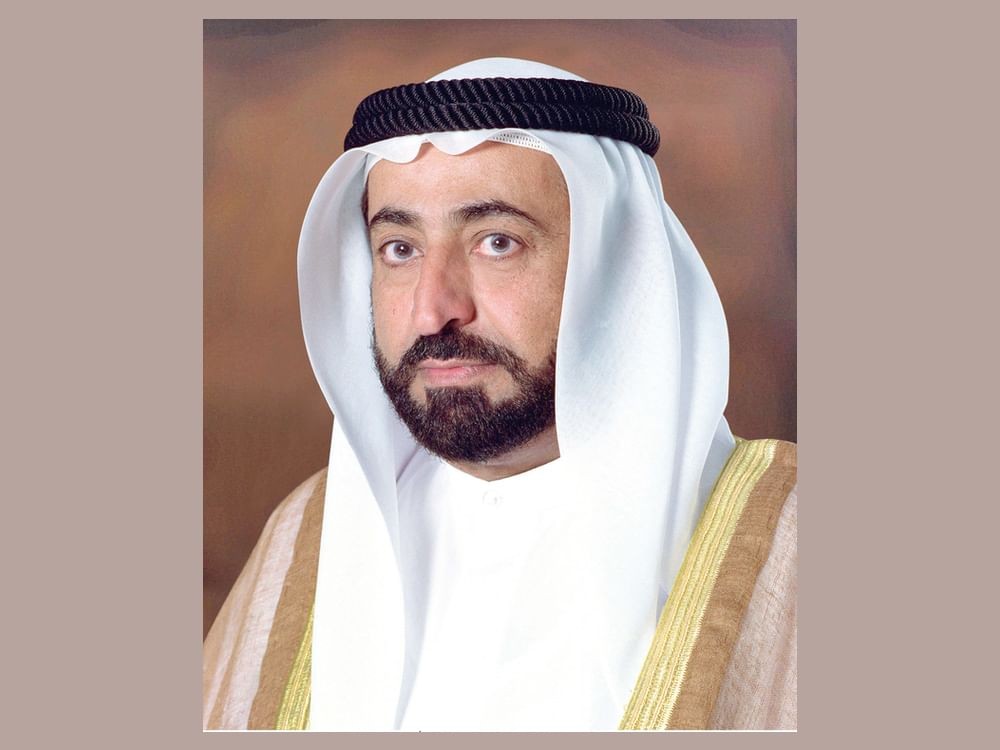



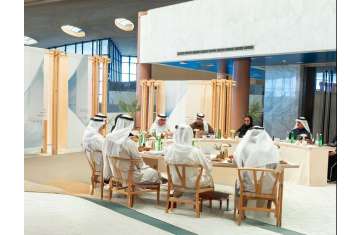
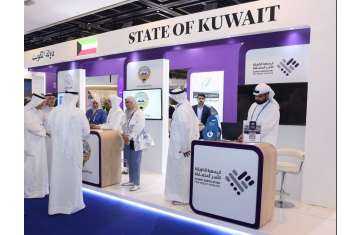
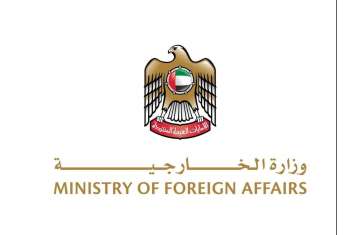
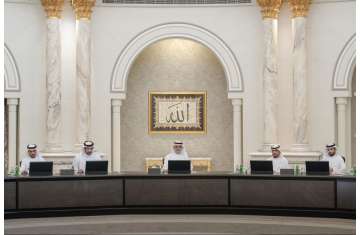
Comments